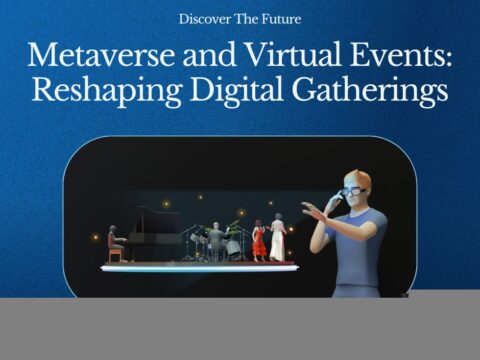The concept of the metaverse, a virtual shared space where users interact with a computer-generated environment and each other, holds the potential to positively influence mental health and well-being. In this exploration, we delve into the ways the metaverse can contribute to mental health in a positive manner.
1. Accessible Mental Health Resources:
- Virtual Support Networks: The metaverse can serve as a platform for accessible mental health resources, including support groups, counseling services, and educational materials. Users can connect with others facing similar challenges, fostering a sense of community and understanding.
2. Immersive Therapy and Wellness Programs:
- Innovative Therapeutic Approaches: Virtual reality (VR) experiences within the metaverse can facilitate immersive therapy sessions and wellness programs. These experiences may offer alternative therapeutic approaches, such as exposure therapy or mindfulness practices, in a virtual setting.
3. Social Connection and Community Building:
- Overcoming Social Isolation: The metaverse provides an avenue for social connection, especially for individuals who may experience social isolation. Virtual communities and events allow users to engage with others, reducing feelings of loneliness and fostering a sense of belonging.
4. Creative Expression and Art Therapy:
- Empowering Artistic Expression: Virtual environments in the metaverse offer opportunities for creative expression and art therapy. Users can engage in artistic endeavors, creating and sharing their work as a means of self-expression and emotional release.
5. Interactive Mindfulness and Relaxation Spaces:
- Stress Reduction Through VR Environments: Virtual spaces designed for relaxation and mindfulness can contribute to stress reduction. Users can immerse themselves in calming environments, engage in guided meditation, and utilize VR tools for stress management.
6. Educational Platforms for Mental Health Awareness:
- Promoting Mental Health Literacy: The metaverse can host educational platforms focused on mental health awareness. Users can access information about mental health conditions, coping strategies, and self-care practices, contributing to increased mental health literacy.
7. Virtual Support Groups and Peer Mentoring:
- Peer-to-Peer Support Networks: The metaverse facilitates the creation of virtual support groups and peer mentoring programs. Individuals dealing with similar mental health challenges can connect, share experiences, and offer support in a safe and anonymous virtual space.
8. Personalized Mental Wellness Apps:
- Tailored Virtual Wellness Experiences: Developers can create personalized mental wellness apps within the metaverse. These apps can offer customized experiences, combining elements of gamification, education, and positive reinforcement to support mental well-being.
9. Exploration of Nature and Therapeutic Environments:
- Bringing Nature to Virtual Reality: VR experiences in the metaverse can simulate nature environments, providing users with the benefits of nature exposure. This exploration can contribute to relaxation, stress reduction, and improved mood.
10. Crisis Intervention and Suicide Prevention Platforms:
- Immediate Support Services: The metaverse can host crisis intervention and suicide prevention platforms, offering immediate support to individuals in distress. Virtual counselors and crisis helplines can provide assistance and connect users with real-world resources.
11. Diverse Cultural and Identity Spaces:
- Inclusive Virtual Communities: The metaverse has the potential to create diverse and inclusive spaces that celebrate various cultural identities. This inclusivity fosters a sense of acceptance and understanding, positively impacting the mental well-being of individuals from different backgrounds.
12. Digital Well-being Metrics and Tracking:
- Promoting Healthy Technology Use: The metaverse can incorporate digital well-being metrics and tracking tools. Users can monitor their screen time, set usage limits, and receive notifications to encourage mindful and balanced engagement in the virtual space.
Conclusion: A Holistic Approach to Mental Wellness
As the metaverse continues to evolve, its positive impact on mental health and well-being becomes increasingly apparent. By leveraging virtual spaces for support, creativity, education, and community building, the metaverse has the potential to contribute to a holistic approach to mental wellness, reaching individuals in diverse and innovative ways. As developers, mental health professionals, and users collaborate, the metaverse can become a transformative force in nurturing minds and fostering positive mental health outcomes.





